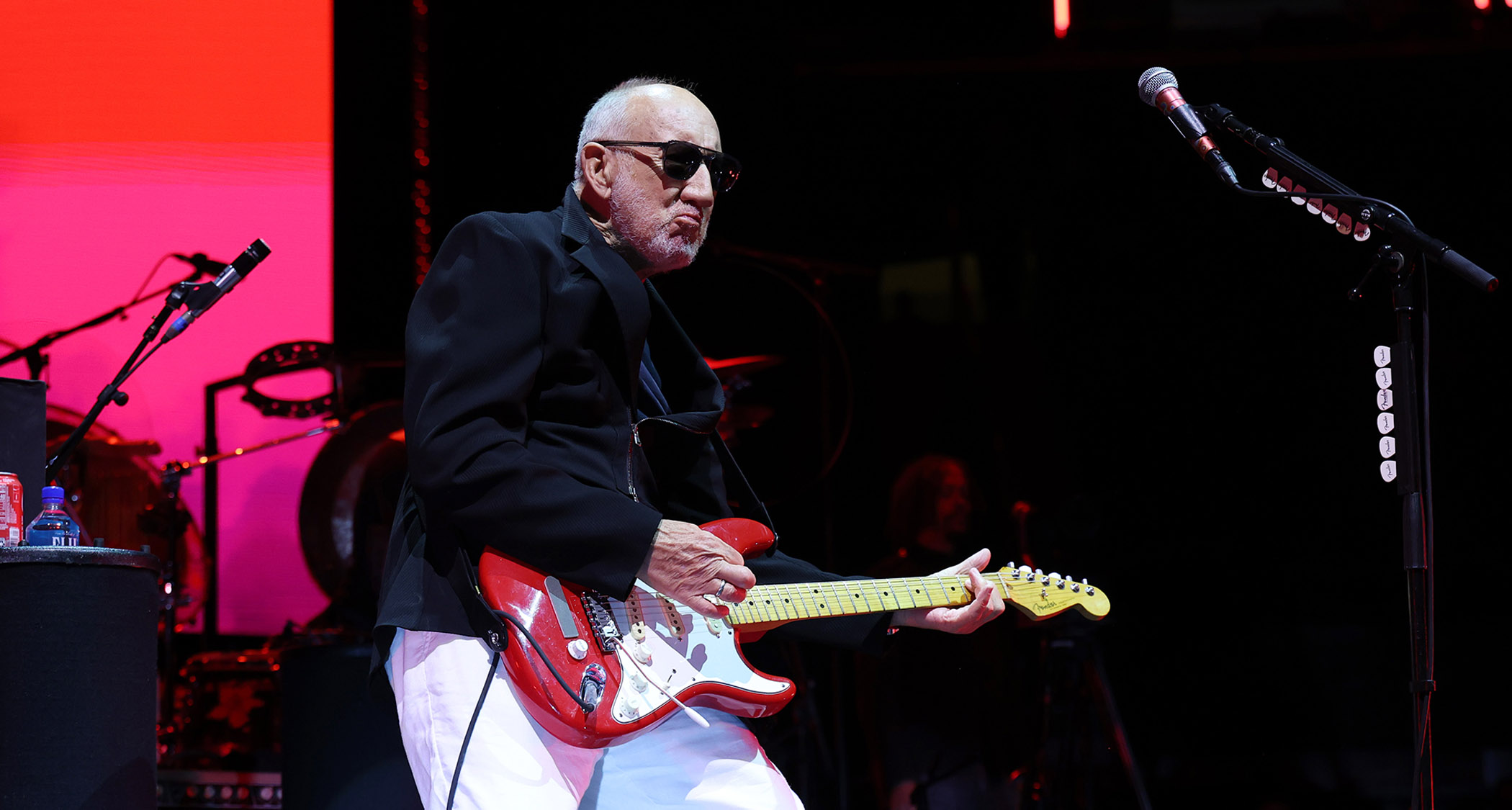How Supersonic Blues Machine are evolving the art of blues guitar and doing everything in their power to stop the genre becoming a "museum piece"
LA’s superstar blues collective currently features guitar royalty Josh Smith, Kirk Fletcher and Ana Popović – they join us for a roundtable discussing the blues scene, competition, and the pros and cons of the new age of guitar stars
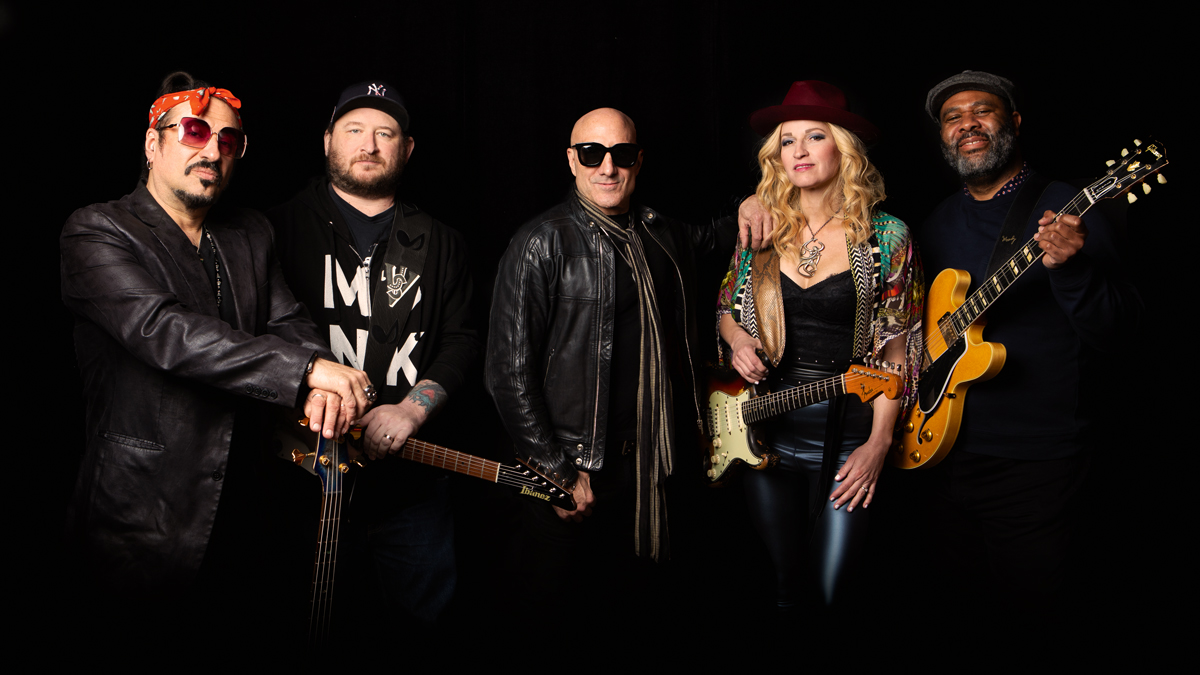
Hidden among the Tarantino-esque back alleyways of Van Nuys, California, is a vibrant musical Mecca. It’s housed in an unassuming industrial warehouse that sits over the hill from Hollywood and shares the block with blue-collar businesses and the occasional food truck.
The hallways are decked with flight cases, some bearing names of legendary LA artists. There are many units, covered rehearsal rooms, storage and studios, the decor is refreshingly old-school rock ’n’ roll. It’s a buzzing hive that reflects none of the glitz and glamour commonly associated with Los Angeles, and you certainly won’t find an ‘Instagrammable moment’ in the foyer here.
This, instead, is where the LA musical elite come to hone their craft, create new projects and prep for worldwide tours. At the end of the hall, drummer Kenny Aronoff (above, centre) and bassist Fabrizio Grossi (above, far left) are musical neighbours. They also make up the superstar rhythm section of Supersonic Blues Machine.
Aronoff is a drummer’s drummer, a rhythmic powerhouse. In LA you are just as likely to find him playing local megadome The Staples Center as you are laying it down with other LA luminaries at Studio City’s long-standing jazz club The Baked Potato. Grossi was born in Italy and arrived in LA in 1996. He is an accomplished bassist and producer, with a history of working with some of the world’s greatest guitarists.
Their collaborative project, Supersonic Blues Machine, is no exception. It’s a hub for guitar elites such as Billy F Gibbons, Robben Ford, Walter Trout and Eric Gales. A platform for six-string slingers to jump onboard and let rip, both live and on record. Their second album, Voodoo Nation, sees Kris Barras take front-of-stage vocal and guitar duties, and once again, there is a more than impressive guest list.
Today, Guitarist joins Aronoff and Grossi with the LA contingent featured on the record: Josh Smith found his way here from Florida, Kirk Fletcher is born and bred but now living in Switzerland, and Serbian Ana Popović, who relocated to the West Coast a few years ago.
When you think about it, I wouldn’t play the way I do if I didn’t live in LA. I was able to see Michael Landau, Larry Carlton, Robben Ford. BB King would come through town
Kirk Fletcher
The record is a star-studded affair, but you have the same vocalist on each track. Was that commonality throughout each song important for you?
All the latest guitar news, interviews, lessons, reviews, deals and more, direct to your inbox!
Kenny: “I think it just ended up that way. You got the core people playing together then we had guests come in, and it’s almost like we’re the cake and they’re the icing on the cake. They just are adding to what already is there. So there is a common thread.”
Josh Smith: “You’re right. From an outsider’s perspective, having listened to the records that you guys did with Lance [Lopez] and with all the guests, and then listening to the track you sent me to play – I was struck how you’re able to keep it sounding like the same band on everything, no matter who’s guesting. And that’s all down to you two guys.”
Fabrizio Grossi: “You know when you have friends, or even in a relationship, that you know the other person so well that sometimes you can finish the other people’s sentence? That’s exactly what it is – and I think that’s what keeps it all together in that sense.”
The new record is a showcase of collaboration. What part has collaboration played in your career?
Kenny: “I think everything is about collaboration. You got to be able to connect with somebody, to communicate. Now, you can collaborate. The collaboration comes from understanding somebody.”
Kirk Fletcher: “I just want the music to sound better. What can I do to make the music sound better? And that’s my collaboration. And maybe something that somebody didn’t think of right off hand. Maybe I heard one record that somebody else didn’t hear and I could draw from that. That’ll inspire me to play something maybe a little bit off the beaten path. Those, to me, are the most magical times in music.”
Ana Popovic´: “And the best you can do is just be yourself, right?”
Kenny: “That is the most important thing, to be yourself, because there’s nobody like any one of us.”
Let’s talk a bit about the LA blues scene…
Fabrizio: “There’s no scene.”
Kirk: “I don’t want to be super-depressing sounding or anything, but I will say that when I first started playing in the blues clubs in the ’90s – I guess our generation started playing in the early ’90s in the blues clubs – it was this blues boom, House Of Blues, BB Kings. Orange County had a scene. San Diego had a scene. There were a lot of blues clubs for us. I know it wasn’t the ’60s or anything, [but] it just died down and it turned into a couple clubs to play.
“It’s a little bit heartbreaking because some of my friends are the most virtuosic guitar players, musicians, and they’re like, ‘Man, I would come out and play.’ And you just wish you had some place to play. But at the same token, you can hook up and see people and do interviews and have Kenny Aronoff up here and everything. LA is still…”
Kenny: “…a melting pot.”
Fabrizio: “It’s more melting at this point [laughs].”
Kenny: “LA is a melting pot for all kinds of things. Inspiration, hi-tech, corporations, building a career in all kinds of areas. That trickles down into everything. You’re going to run into all kinds of people here. That’s what I like about LA.”
Kirk: “When you think about it, I wouldn’t play the way I do if I didn’t live in LA. I was able to see Michael Landau, Larry Carlton, Robben Ford. BB King would come through town. All of the guys would come through town and that 100 per cent affected the way I played.
“Then having the gospel, being raised up in the church and everything like that. You might move somewhere else and get two of those things. You might move somewhere else and get another two, but you’re not going to get all of that because you need a little bit of all of it to be Kirkie Fletcher.”
Fabrizio: “But also, you were lucky to live it in the right time when all that was happening. Because, right now, it’s funny, interesting and depressing at the same time in this town. Like you guys were mentioning, you got the musicians that are playing with some of the biggest rock/rock-blues bands in the world, but there is not a blues scene. It’s like, ‘How’d that happen?’
When I finally came to LA, that was my stop because there was the old legacy of the old Laurel Canyon in the ‘60s. From Buffalo Springfield and Joni Mitchell and The Doors
Fabrizio Grossi
“But when I finally came to LA, that was my stop because there was the old legacy of the old Laurel Canyon in the ’60s. From Buffalo Springfield and Joni Mitchell and The Doors. All of that. Everything the people before us did, for some reason it still lives in this town and you can feel it.
“Maybe you cannot write it down, but there’s a major difference when you get on stage and you record something here with the guys from here, and then you go anywhere else in the world. They might have a better studio, they might have better everything, but it’s not LA.”
Kenny: “These studios have a personality. Just like somebody growing up in a house, there’s the family that lives in the house, but the house has a personality. You walk over to Sunset Sound and it’s like, ‘Oh yeah, that’s where The Stones recorded, and that’s where fucking Van Halen recorded, Smashing Pumpkins…’ And that room hasn’t changed much since then and you can feel it. There’s studios all over town like that. It’s history. It documents history.”
Fabrizio: “If you go to Whiskey, probably they still have the rug that Jim Morrison threw up on. But it’s part of the legacy. That’s what makes it special.”
Ana: “I moved so much. From Serbia, from Amsterdam, Memphis. We have more than 100 shows a year and just the nice thing about it is that every show is a different state, different country, different whatever continent, right? But then, when you come back, there’s a certain energy about this place.”
Kenny: “It’s a good place to come back to.”
How about the blues scene in general – worldwide?
Kirk: “I think there’s a whole lot of blues, and I think there’s a whole lot of fantastic players and a whole bunch of gigs. I just got to do them.”
Fabrizio: “Amen.”
Josh: “The blues is a music that ebbs and flows – obviously, the popularity of it – but it never goes away. We’ve seen it ebb and flow constantly over the past 30 years and have high moments and low moments. If you’re committed to it, then that’s just what you do. Right now, I think there’s a lot of good people playing blues and a lot of bad people playing blues, but that’s good.
“At least there’s a scene, or at least globally. I have noticed an uptick in the amount of records being released and the amount of interest in the blues lately. That’s a good thing.”
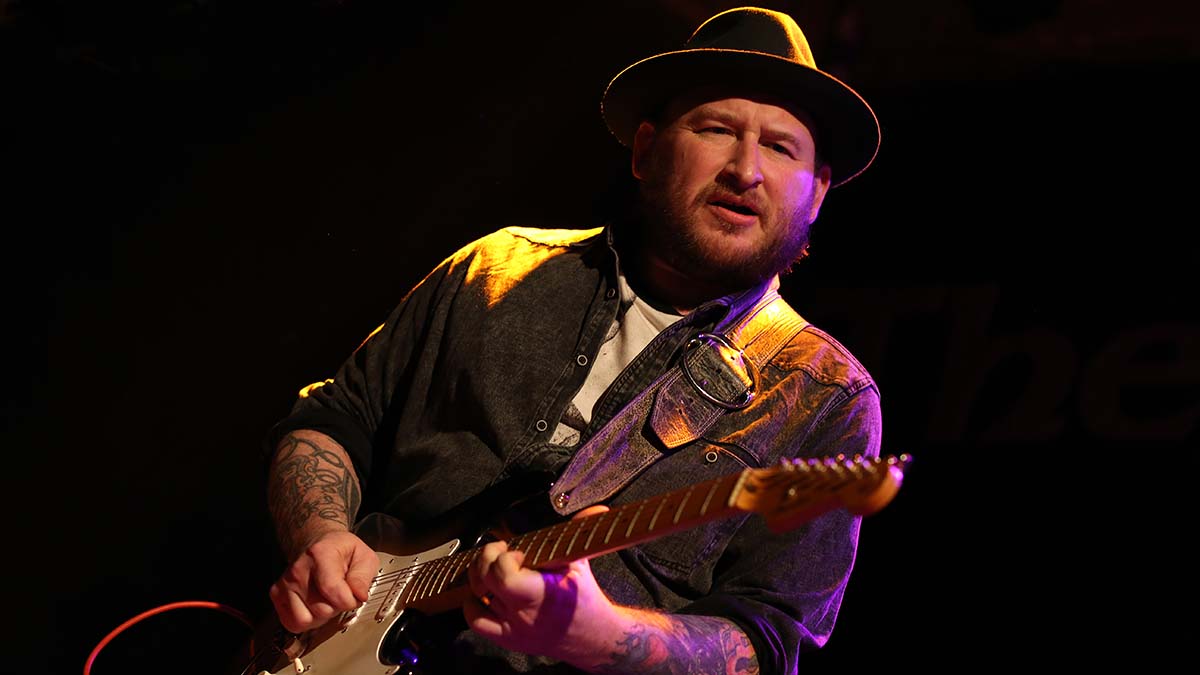
What artists have stood out to you lately as inspiring?
Josh: “I want to hear the effort when I listen… I listen to records from a producer standpoint, probably the way Fab does. I want to hear your amount of effort that you put into this project. I’m striving to make everything as great as I can – and that doesn’t mean complicated. It could be simple. It’s just, is this the best you can do?
“I think, in the blues, there was a long period over the last 15 years where everybody was not doing the best they could do. They were putting out just shit records that sound like shit, songs that were afterthoughts. All those types of things. So that’s what I’m listening for all the time. I’m listening for who’s putting in the effort.”
Ana: “And the same thing for live shows, right? There’s been a long time where I would just think, ‘Oh man. A whole festival line-up like this? They come in and they play long shuffles and long, slow blues.’ But people stepped up their game, and that’s wonderful to see.”
Do you think that competitive element has helped the blues scene?
Ana: “Probably – because if you don’t do it, somebody else will. So you better have a good show.”
Fabrizio: “I second this motion about the upticking of the blue scene now. Actually, I’m really happy because what I’ve seen about blues worldwide, not only Los Angeles, is that the world is getting the lessons that I got from the blues. Now, you can grow up in Los Angeles or you can grow up in Mumbai.
“There was an Indian guitar player, one of the most intense blues players I’ve ever heard in my life, and the guy was from New Delhi. It’s part of the YouTube generation and he was exposed to music in a different way. But what I’m trying to say is that the blues that I got helped me to maintain some sort of truth, [an] organic and very spiritual and soulful approach to the music that I generally do.”
Kirk: “Culturally, I think that a certain group of people look at the blues as, ‘Oh, that’s BB King, Elmore James.’ Everybody knows that I’m a worshipper of all that – but I think, culturally, black people just transitioned on into something else. They were like, ‘Okay. Elmore James is going to transition into Motown and all of this other stuff.’”
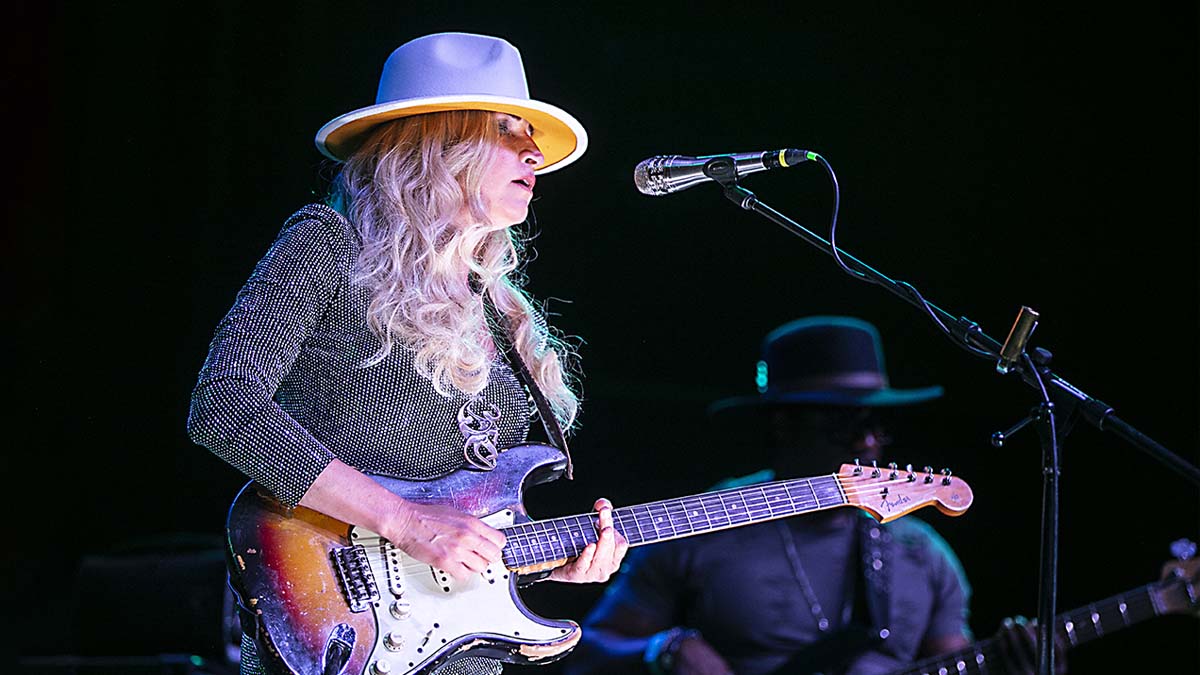
Kenny: “Jimi Hendrix.”
Kirk: “Yeah. They’re going to transition into that. But I think that if we could all learn from the music evolving and have that heart and soul, and write good songs, play our instruments really well…”
Kenny: “What a concept.”
Josh: “There’s a movement in the blues of people who are unwilling to do anything other than try to replicate – and sound like a museum piece. You know what I mean? We love this music more than anything in the world. We know our history, we’ve done our homework.”
Kirk: “I’ve been through that school.”
Josh: “But how does that do anything for moving the music forward?”
Culturally, mediocrity became acceptable across the board, not just in music
Kenny Aronoff
Kenny: “Absolutely. The thing is, when we were all kids – I’m sure you guys were all the same way – it is a big deal to be great at your instrument. Then you can hang with the better musicians. The day I graduated high school, I was practising eight hours a day. Nobody had to tell me to do that.”
Josh: “It was the only thing that mattered. In some ways, it’s still the only thing that matters.”
Kenny: “Once you’ve been bitten by that, forget it. I think now, culturally, mediocrity became acceptable across the board, not just in music. That is a huge difference. That stuff never even occurred to us, right? Never.”
Fabrizio: “Is it not only the musicianship, but the showmanship? It made sense, when you had somebody like Hendrix, to say, ‘I’m going to see Jimi Hendrix. Are you coming?’ So, when we say, ‘I’m going to a concert,’ are you going to listen to the band or are you going to watch the band?”
A lot of guitar players these days are introducing themselves with one-minute TikTok or Instagram videos. It’s very different to going to see a 90-minute show, isn’t it?
Kenny: “Yeah, that’s just one little spice in a big thing you’re cooking.”
Ana: “But every time has its ways. This time, if we were starting now, I guess our audience would be…”
Josh: “…it would be different.”
Ana: “I think we should be more open-minded towards the new world and new times, than being stuck in the ‘70s with Gary Moore and Still Got The Blues, where everybody had time to sit down and listen to the whole record over and over and over again.”
Fabrizio: “But that’s the thing that really bothers me. It’s not the fact of the age or anything like that – because that’s just technology. I’m not against streaming. The problem is, how far I can reach with that minute? So you start to modify your music and your skills, or everything that you do, to fit it in that minute.”
Ana: “You have to look at it as ‘teasers’. Those are teasers and people that want that music will find their way to get to your show.”
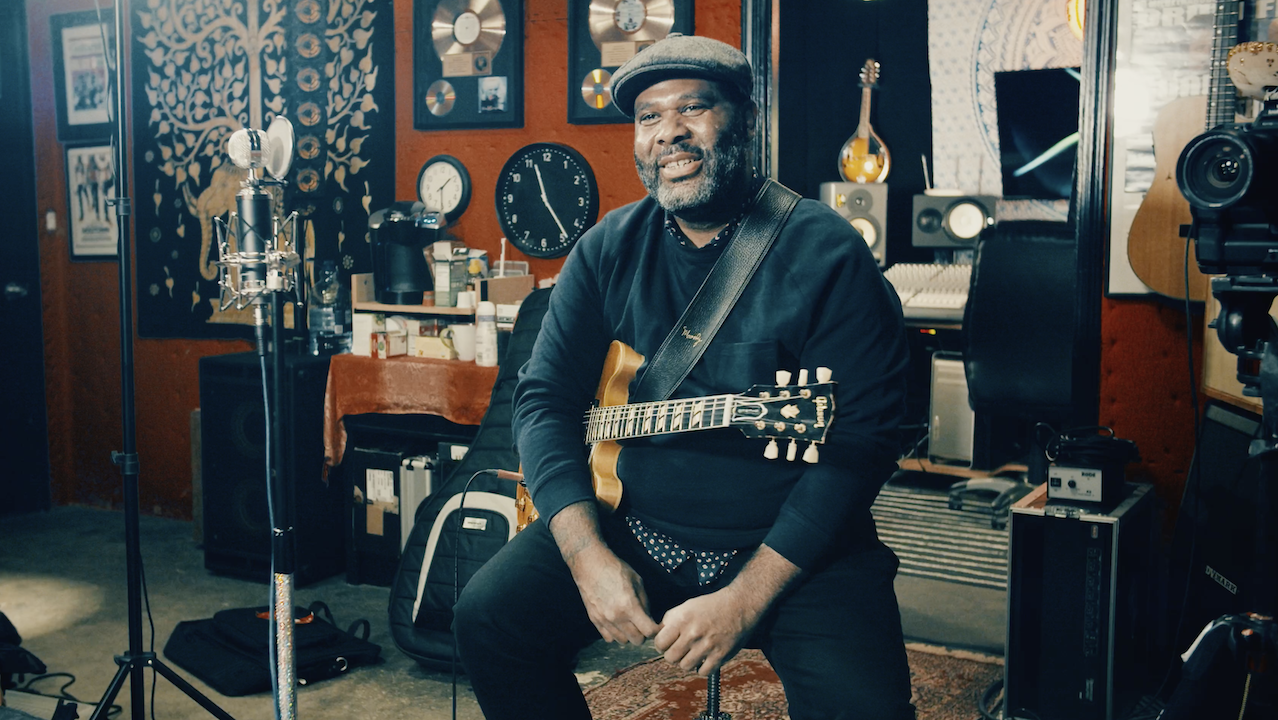
Kirk: “I think that there needs to be more mentorship. It took me a long time to wrap my head around it, but this pandemic made me think of the things that I can offer, which ain’t much, but I know a lot about blues music, so I want to talk about it and I put up videos.
“It was amazing to see the responses by these younger people that don’t have anybody doing that – because all of us older guys are like, ‘Oh man, it’s over.’ But if you take a minute and see these young people and see that they want to learn, then maybe you’ll have a different outlook on it.
“The other thing is, Purple Haze was only, what, about three minutes or something like that? And that was what drew the people in to listen to the rest of the record. So I know that it’s been very heartbreaking for me, the way the music industry has been going, but also at the same token I have to go, ‘Well, damn. Maybe I need to change up my whole thing and think about it in a different way.’”
Josh: “This comes down to trying to make a living. That drives some of what we do, whether you like it or not. So you have to be so incredibly diverse now to make a living as a musician. So I have like eight million avenues that bring me little bits of money. You know what I mean? And they add up, sometimes to enough to pay the bills. But it’s been both exciting and disheartening.
You have to be so incredibly diverse now to make a living as a musician. So I have like eight million avenues that bring me little bits of money
Josh Smith
“Like Kirk said, if he makes a video talking about the way Pat Hare played on a Muddy Waters record and no-one has any idea about it, all these people are learning something cool. A million people are going to watch that video. And then the same day he puts up the link to his new song – 300 people are going to listen to that. It’s annoying as fuck. I’ve seen it across the board.
“When I put a video up where I teach something or talk about something, a million people watch. When I put up just music, thousands watch. There’s a big shift. You have to take it in your stride; you got to deal with it mentally. Like, ‘It’s not always about the music.’ Maybe the video of you talking about that is the new single and you’re making new fans from that and they reach out. Instead of buying your record, they buy your freaking lesson plan at TrueFire.”
Let’s go back to collaboration. Is the ultimate musical collaboration that of the musicians in the band, with the audience, at a real live show?
Kenny: “It’s two collaborations: the band within themselves; and then the band with the audience and audience with the band.”
Fabrizio: “Yeah, it’s a 3D experience.”
Kenny: “Humans are feeling creatures, so if they see the band up there having this interaction and they feel like they’re part of something special, even if they’re not aware of it, they’re feeling it. They’re going, ‘Oh, wow.’ They’re feeling that. They can see that. That’s heavy.”
- Voodoo Nation is out now on Provogue.
Robin Davey is is an English-born, LA-based musician, record producer, musical director and videographer. Robin formed UK blues rock band The Hoax, who were signed to East West records in the mid-90s. Other bands include The Davey Brothers, The Bastard Fairies, Well Hung Heart and blues rockers Beau Gris Gris & the Apocalypse, who also feature his partner Greta Valenti on vocals. The two run a video production house, Growvision, and produce our Pedalpocalypse series.
